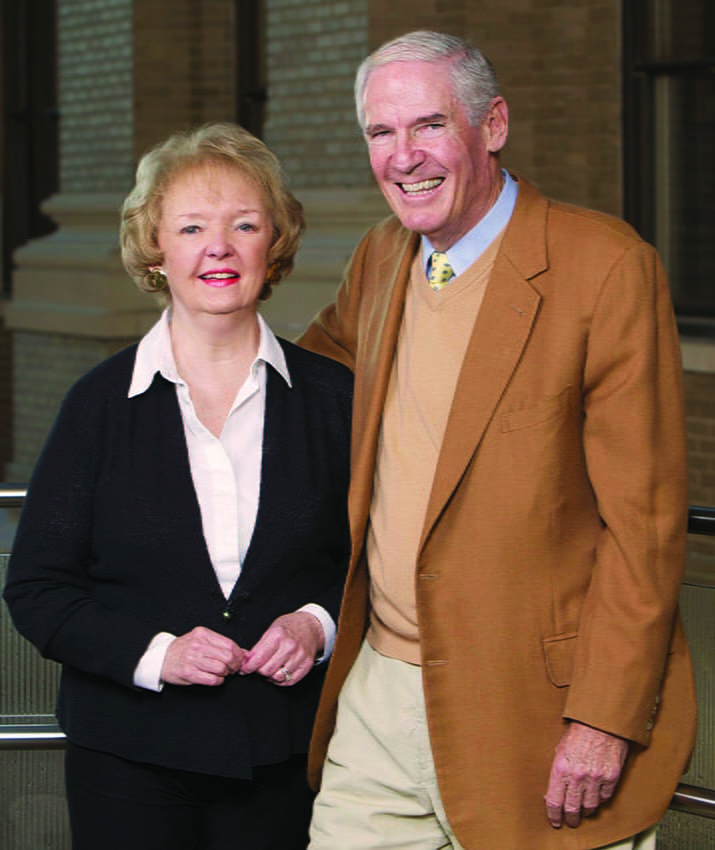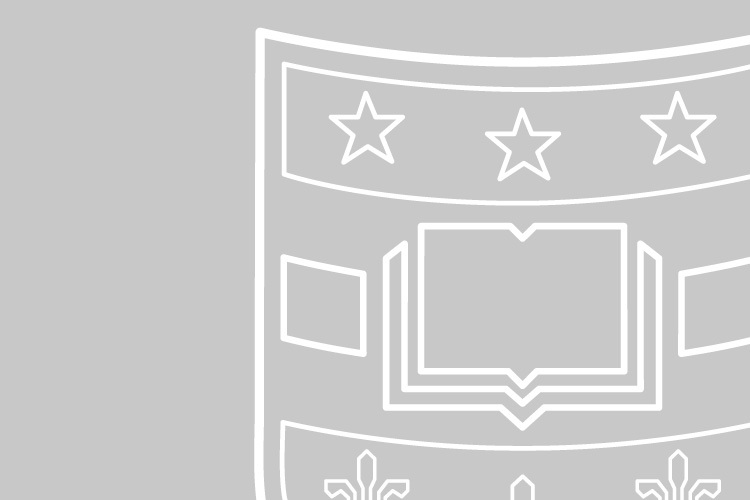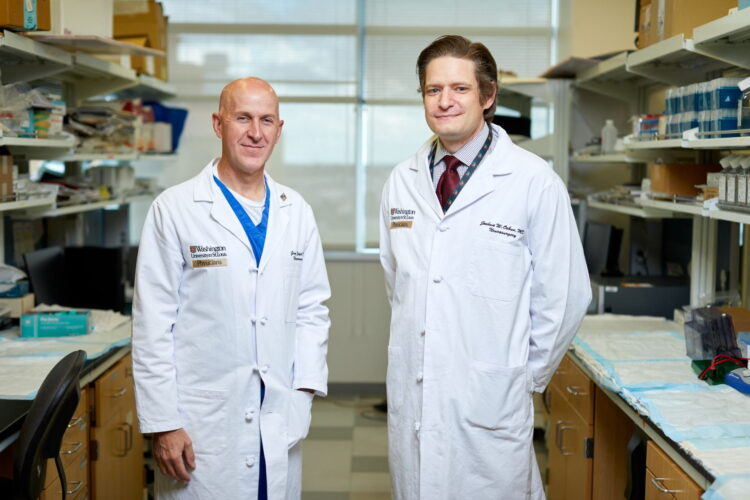About the Challenge
Donors who participate in the Knight Alzheimer’s Primary Prevention Challenge will help Washington University secure $6.5 million in matching funds pledged by Joanne Knight to support the first Alzheimer’s disease primary prevention trial.
Contributions will be put to work immediately to help cover expenses associated with the trial, such as scientific and clinical personnel; equipment and supplies; patient enrollment and retention; data management and analysis; laboratory testing and imaging; and regulatory compliance.
Match Criteria
- Gifts will be matched dollar-for-dollar until challenge funds are exhausted.
- Pledges payable over a period of up to five years also will be matched.
For more information or to make a gift, visit the Knight Challenge website.
More than 5 million people in the United States are living with Alzheimer’s disease, and that number is expected to rise to nearly 14 million by 2050. The disease, the most common cause of dementia late in life, exacts a significant toll on patients and families. Although scientists in recent years have made progress in understanding how Alzheimer’s develops in the brain, they have been unable to identify effective treatments to ameliorate its impact.
A pathbreaking study conceived by leading Alzheimer’s investigators at Washington University School of Medicine could brighten this grim picture. Set to launch in 2021, the first-of-its-kind clinical trial aims to stop the disorder before it starts. To help bring this promising research to fruition, longtime university benefactor Joanne Knight has established the Knight Alzheimer’s Primary Prevention Challenge.
The $6.5 million challenge will match gifts and pledges directed to the Knight Family Dominantly Inherited Alzheimer Network Trials Unit (DIAN-TU), which is leading the primary prevention study. The completed challenge will provide the final portion of funding needed to conduct the trial and will augment existing support from the National Institutes of Health, Alzheimer’s Association, and GHR Foundation.
“As they have so many times in the past, Joanne Knight and her family have stepped forward to help us expand the boundaries of Alzheimer’s disease research,” says Randall Bateman, BS ’95, MD, the Charles F. Knight and Joanne Knight Distinguished Professor of Neurology and director of the Knight Family DIAN-TU. “Their philanthropy has significantly advanced groundbreaking work at Washington University and beyond.”
Focus on Prevention
The goal of primary prevention is to block a disease or injury from occurring. In the case of the Knight Family DIAN-TU primary prevention trial, investigators aim to thwart the accumulation of amyloid-beta plaque deposits and tau tangles—signature brain changes associated with Alzheimer’s disease—using a drug or combination of drugs.
Participation in the trial will be limited to people with a specific genetic mutation that causes a form of the disorder called dominantly inherited Alzheimer’s disease (DIAD). Those who inherit the mutation are all but certain to develop Alzheimer’s early, typically between the ages of 30 and 60. This population offers researchers a rare opportunity to evaluate preventive therapies in individuals who do not yet show signs or symptoms of the disease. Because the mechanisms of DIAD are similar to those of the more prevalent form of Alzheimer’s, the study’s findings will help inform strategies to prevent the disease in the general population as well.
“The primary prevention trial is the next step in the decades-long scientific effort to understand Alzheimer’s disease,” says Eric McDade, DO, associate professor of neurology and primary investigator of the study. “My sincere hope is that this trial will provide important clues to help us prevent the disease or treat it more effectively.”
The Knight Family DIAN-TU was established in 2010 as the clinical trials arm of the Dominantly Inherited Alzheimer Network (DIAN) at Washington University. DIAN is a hub for international research involving families with DIAD. Over the last 12 years, the DIAN team has assembled a group of collaborating research institutions in North and South America, Europe, Asia, and Australia. This remarkably strong network enables scientists, clinicians, and individuals from families affected by DIAD—all deeply committed to curing Alzheimer’s—to connect for conferences and research.
Work conducted through DIAN and the Knight Family DIAN-TU has extended Washington University’s history of excellence in studying Alzheimer’s disease. The university’s Charles F. and Joanne Knight Alzheimer’s Disease Research Center (Knight ADRC), led by John C. Morris, MD, the Harvey A. and Dorismae Hacker Friedman Distinguished Professor of Neurology, has been continuously funded by the National Institute on Aging since 1985. It is one of 32 such centers in the U.S. and among the first group of ADRCs to be established by the federal government.
Over the years, Alzheimer’s investigators spanning dozens of departments across the Danforth and Medical campuses have contributed major discoveries: They created the first clinical diagnostic tool for Alzheimer’s, defined the disorder’s stages of progression, and are in the final phases of developing the first highly accurate blood test for early-stage disease.
A Personal Connection

Along with her husband, the late Charles F. Knight, Mrs. Knight has played an instrumental role in helping advance WashU’s efforts in the area of Alzheimer’s disease. The family’s extensive philanthropy at the university includes significant gifts for the Knight ADRC and Knight Family DIAN-TU—both named in their honor—and the Charles F. and Joanne Knight Distinguished Professorship in Neurology.
The couple’s generosity also has benefited the Alvin J. Siteman Cancer Center and other areas of the School of Medicine as well as Olin Business School. Mr. Knight, who was CEO of Emerson Electric for 27 years and a university trustee for more than a decade, was a founding member of Olin’s national council, and the couple provided gifts for the school’s Charles F. Knight Executive Education and Conference Center and Charles F. and Joanne Knight Hall, among other purposes.
A longstanding board member and former chair of the Greater Missouri Chapter of the Alzheimer’s Association, Mrs. Knight had her first brush with Alzheimer’s when her mother developed the disease in the 1980s. Mr. Knight later developed the disease as well.
“The effects of Alzheimer’s are difficult not only for individuals but also for their families,” Mrs. Knight says. “Through the Knight Challenge, I hope to inspire all those who have encountered the disease to join my family in supporting the talented researchers at Washington University and paving the way for a brighter future.”
Contact us to learn more about supporting research at Washington University School of Medicine.


